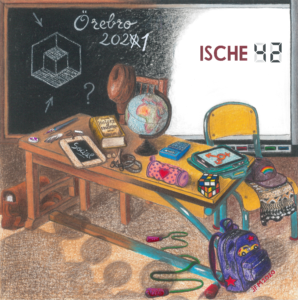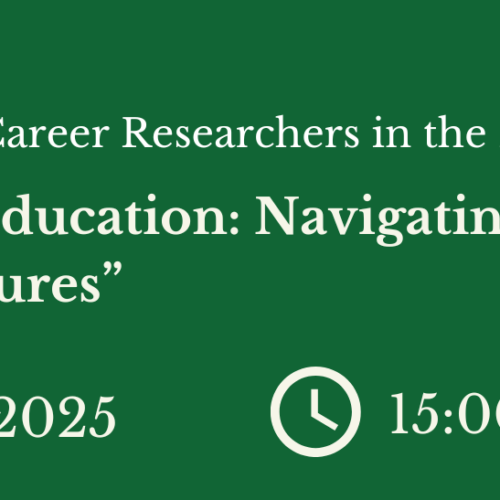Call for papers
Looking from Above and Below: Rethinking the Social in the History of Education
 For ISCHE 42, we encourage researchers to address and rethink what the social means for us as historians of education today. Currently, there is a range of societal and cultural developments that affect the discipline of history of education, including globalization, climate change, increasing social inequality and the rise of far-right populism. We also see a range of social movements addressing a variety of major political issues (#metoo, school strikes, anti-racism movements). These developments raise further questions regarding what kind of history of education research is and will be relevant in the twenty-first century.
For ISCHE 42, we encourage researchers to address and rethink what the social means for us as historians of education today. Currently, there is a range of societal and cultural developments that affect the discipline of history of education, including globalization, climate change, increasing social inequality and the rise of far-right populism. We also see a range of social movements addressing a variety of major political issues (#metoo, school strikes, anti-racism movements). These developments raise further questions regarding what kind of history of education research is and will be relevant in the twenty-first century.
In the twentieth century, social history stressed the importance of social and economic structures and processes, and dealt with questions concerning demography, kinship and social classes. Since the 1960s, it has expanded the horizons of historical research to include collective mentalities, social movements and social protests. In the field of history of education, social historical approaches have prompted investigations that (critically) examine the relationship between school and society while shedding new light on the interaction between education and social class, family life, gender, minorities and economic structures. As such, social history has interrogated and challenged studies written from the perspective of political and legal history and instead promoted grassroots histories of teachers, children, students and parents. As a result, social histories of education have promoted interdisciplinary tendencies, an emphasis on the realities and experiences of non-elite groups, as well as an interest in quantitative data and a wider range of sources.
In the last decades, the field of history and the world have further changed. ISCHE 42 will address new developments in methodology and analysis. In terms of theoretical approaches and topics, history of education has expanded significantly through a range of so-called “turns” as part of a cross-fertilization with neighbouring disciplines or strands of research. We have seen a constant widening of research interests to include fields such as global, postcolonial and environmental history of education, and the social and entangled histories of knowledge, emotions, memory, materiality, spatiality, technology, corporality and visual culture. In addition, the possibilities offered by digital history are still being discovered and the opportunities of analysing big data pose important questions and challenges for future research in history of education. The implications of such developments for concepts such as “social”, “from above”, and “from below” remain largely unchartered.
ISCHE 42 invites scholars to rethink “the social” in history of education by re-addressing important cultural, technological, legal, economic, political, theoretical and methodological issues. We welcome the submission of papers that promote the development of the concept of “the social” in history of education in as yet unexplored ways. The following seven sub-themes are of particular interest:
1. Rethinking the social within the “turns” in history of education: methods and theories
2. Social history of educational knowledge, media and learning technologies
3. Populism, social justice and human rights in history of education
4. De-centralized histories of education: non-binary and postcolonial approaches
5. New social educational histories from emerging margins of society
6. Scale, diversity, and digital applications as challenges in the history of education
7. Material and visual approaches to the social in the history of education


